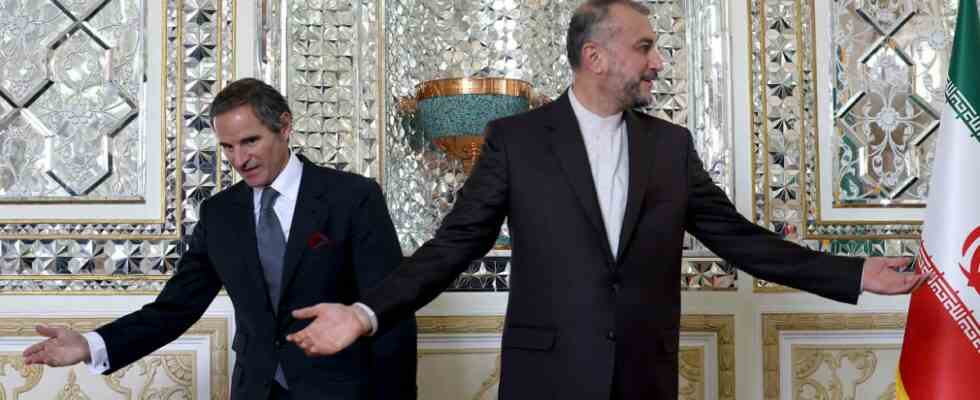Annex IV, point 4.1., of the nuclear agreement with Iran contains the sentence: “Unless otherwise stated in this Annex, decisions of the Joint Commission shall be taken by consensus.” With this claim to consensus, Russia is currently trying to undermine the sanctions imposed by the West for the war of aggression against Ukraine – and in doing so may cause the revival of the deal to burst. Because so far the largely negotiated text for a return of the USA to the agreement and its compliance by the Islamic Republic provides for a decision according to these regulations.
Russia, however, demands that its trade with Iran must not be affected in any way by the sanctions imposed because of the war. Iran would then be the loophole through which Moscow could at least partially circumvent the broad-based penalties. It is clear that neither the Europeans nor the US are ready to respond to this demand. Washington sees “no leeway to go beyond the limits” of the agreement Wall Street Journal a senior US government official. European diplomats make similar statements. On the other hand, they are ready to ensure that Russia can fulfill its tasks in civil nuclear cooperation with Tehran as defined in the agreement without hindrance.
It will be known within the next few days whether Russia will back down on its demands, according to diplomatic circles. Otherwise, you play through different options to close a deal without the involvement of Russia. However, it is unclear how China, which is also a party to the original agreement, would react in this case, and whether Tehran would be willing to bypass Moscow. This would also entail considerable complications in the USA: President Joe Biden would have to present such a new agreement to Congress.
In any case, the Foreign Ministry in Tehran tried to be optimistic that it would still be possible to conclude the eleven-month talks in Vienna. “We are only in a short break and not in a dead end,” said spokesman Said Khatibzadeh on Monday. Iranian Foreign Minister Hossein Amir-Abdollahian wants to speak to his Russian colleague Sergei Lavrov in Moscow this Tuesday. Qatar’s Foreign Minister Sheikh Mohammed bin Abdulrahman al-Thani intervened as a mediator at the weekend.
Iran could supply a million barrels of crude oil a day in the short term
In view of the record prices on the energy markets and the expected income, a deal should be in Iran’s interests, but also in the West. Iran could supply a million barrels of crude oil per day in the short term, which could significantly depress prices. Most recently, about the same amount went to China on average. Iran itself states its production capacity at 3.5 million barrels per day and is also one of the most important gas producers in the world. Moscow, on the other hand, has every interest in energy remaining expensive.
However, it is still unclear whether the USA and Iran can finally agree on the sanctions relief. Iran is demanding that the Revolutionary Guards also be removed from the lists. But the Islamic Republic’s elite military formation, which has been penalized by the US for supporting terrorist groups, launched ballistic missile attacks on Sunday in Erbil, the capital of the Kurdish Autonomous Regions in northern Iraq.
The Revolutionary Guards said they had attacked a “strategic center of Israel”; they had previously announced retaliation for an Israeli rocket attack that killed two senior Guard officers near the Syrian capital Damascus in early March. The rockets fell near the construction site for the new US consulate. However, the State Department in Washington announced that it was not assumed that the United States was the target of the attack. It was aimed at a civilian building.

